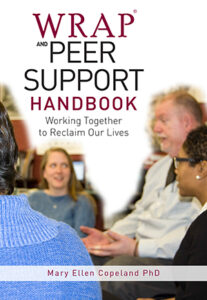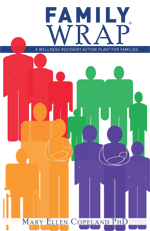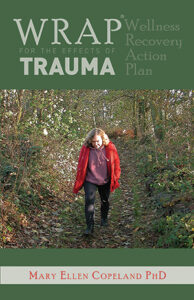At this most difficult time when our nation is once again grieving, I would like to share with you this letter from my friend Tim Field, in response to my question, “What can we do?”
Dear Mary Ellen,
I feel worse today than I have in a long time. Not depressed but sad and more and more angry. These are not normal times for me and my community. When I’m not doing well I sometimes force myself to follow my normal routine and this helps. When I’m clearheaded I change my priorities and routines to better fit what I need and what is needed for others. It’s time for all people and agencies to examine their priorities in light of this tragedy.
 Don’t feel helpless, do something to help!
Don’t feel helpless, do something to help!
There are seven things I’ve read about or thought of – at least one of which anyone can do no matter what condition they’re in:
- Ask for help if you want it. Don’t be shy, stand up for yourself and get help in these times.
- Donate blood. On Sunday, Red Cross Orlando was desperate for three blood types. The Orlando Red Cross director said if you are one of these types go and give blood wherever you are. The Red Cross always needs all blood types all the time everywhere.
- Donate to LGBT organizations. I have donated online to Lambert House in Seattle which serves gay kids and to Equality Orlando. Google “gay resources” followed by your city or locality name to find organizations you can help.
- Contact your LGBT friends. Make sure all your friends are doing okay. Meet with friends as needed. Take care of them yourself or make sure they get the care they need (see below for how I do this).
- Reach out to your family. Pull together in these difficult days.
- Sit down with kids – try to explain to them what happened and what’s happening now.
- Make sure your local mental health agency is responding appropriately to this disaster. Call them. Make sure they know that the LGBT community is devastated, make sure they are reaching out to and prioritizing LGBT clients and other clients who are in distress because of Orlando.
LGBT people, LGBT friendly people, any person in distress over what has happened needs to be given top priority now. I am calling all my friends as quickly as I can, and I check on them as subtly as need be to find out at least three things:
First – Is my friend sad or depressed? I ask them if they have been crying and I ask them if they have been having suicidal thoughts. If so, and if I feel I can help them with this, then I arrange to meet with them as soon as possible. In my experience, a face-to-face meeting works much better than a phone call. If I don’t feel I know enough or I’m not up to helping, then I talk to my friend about who they know that can help such as a peer, therapist, psychiatrist, minister, or another friend.
Second – I ask about anxiety. Have you slept since Sunday? How much? Have you eaten? How much? Here I talk with my friend about the facts, not the feelings. You’ll feel worse and worse and eventually get sick from not eating or not sleeping-that’s the long and the short of it.
Third – I inquire about fear and anger. Some anger is okay because it’s motivating. Too much anger gets me thinking about revenge and that’s not good. I talk with my friend about fear versus love. I think what we all need now is to live in the light of love. Not super sentimental love, not “in love,” but the universal love that feeds us and motivates us to do good and be good to ourselves. “Amare per tutti” as they say in Italian – Love for all.
I try not to tell people what to do. This often doesn’t work – it can backfire and lead to resentment. I tell people what I do – what works for me and importantly, what doesn’t work for me. People have told me this helps, and I know it helps me too.
The LGBT community is in crisis, all of America is in some kind of crisis. Counselors need to be making outreach. People distressed because of Orlando should be given immediate appointments and if this means rescheduling – putting off- normal appointments, then so be it.
What extra help are we getting?
I’ve been trying to make sure that my community mental health center is responding to the new needs of people instead of staying with the normal routine. I’ve called all the staff that I know there and tried to explain to them how dire a situation some people are in since Sunday. I have encouraged them to go to their supervisor and talk with them about how their CMHC can help by asking what it can do and by resetting their priorities. Major outreach to LGBT clients should be done – phone calls and visits. Quick appointments for gay people should be made a priority. Maybe non-emergent appointments could be rescheduled.
Best Regards,
~ Tim

Mary Ellen Copeland, PhD, developed Wellness Recovery Action Plan (WRAP) with a group of people with lived experience who were attending a mental health recovery workshop in 1997. She is the original author of the WRAP Red Book, as well as dozens of other WRAP books and materials. She has dedicated the last 30 years of her life to learning from people who have mental health issues; discovering the simple, safe, non-invasive ways they get well, stay well, and move forward in their lives; and then sharing what she has learned with others through keynote addresses, trainings, and the development of books, curriculums, and other resources. Now that she is retired, and that, as she intended, others are continuing to share what she has learned, she continues to learn from those who have mental health issues and those who support them. She is a frequent contributor to this site.








